Senior Ayatollah Calls US Release Of Iran's Frozen Funds 'Humiliation'
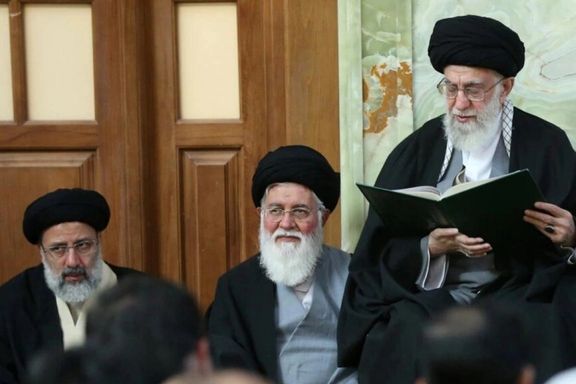
A firebrand senior ayatollah in Iran has called the release of Iran’s frozen funds by the United States “a humiliation” and a “ransom” in exchange for “their spies.”

A firebrand senior ayatollah in Iran has called the release of Iran’s frozen funds by the United States “a humiliation” and a “ransom” in exchange for “their spies.”
Ahmad Alamholhoda, who is close to Iran’s ruler Ali Khamenei and is the father-in-law of President Ebrahim Raisi was speaking during his Friday prayer sermon, August 18, in the religious city of Mashhad.
The hardliner ayatollah said that the ransom was paid not because of humanitarian concern for the hostages, but to prevent “their espionage secrets” to be publicized by Iran’s “interrogation” of the prisoners.
“They accepted to return $6 billion of Iran’s money with humiliation, pay ransom and take back their spies,” Alamolhoda said, while mocking “Westernized” Iranians for pinning their hopes on the United States and Europe.
Earlier this month, Iran announced it had reached agreement with the Biden administration to release five dual national American citizens it had arrested and convicted for espionage and related charges in sham trials, n exchange for $6 billion frozen in South Korea due to US sanctions.
The deal has led to sharp criticism and questioning by US lawmakers and many Iranian Americans, who say the Biden administration made a deal in secret and it is not clear what other concessions it has made to the Islamic Republic. Many critics also say that payment of ransom for hostages will endanger the lives of other Americans by emboldening the Iranian regime and other adversaries.
Alamolhoda addressing Iranians whom he called Westernized said, “Are you pinning your hopes on the gates of the West and expect their help? These are impure cowards who for a few spies,” are willing to be humiliated.
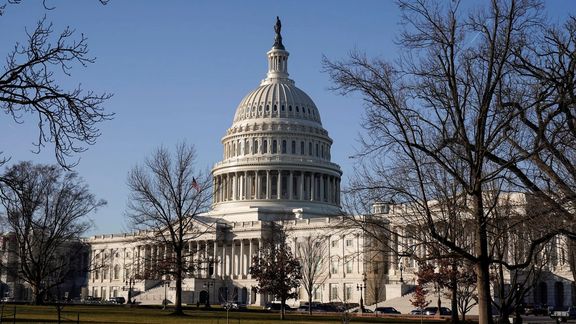
A group of 26 US Republican senators sent a letter to President Joe Biden Friday demanding answers on its controversial money for hostages deal with Iran.
US Senator Jim Risch (R-Idaho), ranking member of the Senate Foreign Relations Committee, Lindsey Graham (R-SC), Tim Scott (R-R-SC), Tom Cotton (R-Ark) and Bill Hagerty (R-Tenn.) were among the signatories of the letter to the White House.
Earlier this month It was announced that the Islamic Republic of Iran released five US dual nationals held in prison on trumped-up charges have been released into house arrest pending Iran receiving around $6 billion of its frozen funds in South Korea. The White House has to waive its sanctions to allow Seoul to free up the money.
Immediately, lawmakers, former officials and many Iranian Americans began to voice strong criticism of the White House decision, that would provide a financial relief to the Iranian regime while it engages in systematic human rights violations and destabilizing activities against other countries.
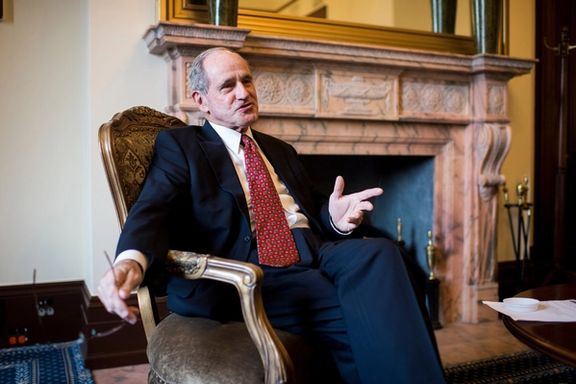
The 26 senators wrote to President Biden that a $400 million cash payment by the Obama administration in 2016 to free hostages held by Iran set a dangerous precedent of more hostage-taking, and “Seven years later, the current administration is providing a ransom payment worth at least fifteen times that amount to the world’s largest state sponsor of terror, in yet another violation of the United States’ long-standing ‘no concessions’ policy.”
Many media reports have indicated that the administration in effect has released more money, with allowing Iraq to free up to $11 billion held by its banks, while the reason for that decision is being kept secret by the administration. Many sources are reporting that the US is holding secret talks with Iran to reach an informal and unwritten deal to put a cap on its uranium enrichment, and the hostage release deal is just the first step.
The administration so far has denied any nuclear deal and insists that the unblocked funds can only be used by Iran to import food and medicine. However, the money will go to Iranian bank accounts in Qatar, a close Iranian ally in euros and it is not clear how much leverage the United States will have on oversee the disbursement of the funds.
The senators who signed the letter stated, “We are also worried that your administration is attempting to sidestep Congress and pursue other pathways to financially compensate Iran in an attempt to renegotiate a successor to the ill-fated 2015 nuclear deal. Any agreement with the Iranian regime that entails financial reward for malign behavior is wholly unacceptable.”
They went on to ask the administration if the release of the assets from South Korea violates existing US sanctions. “Will the President issue a waiver and required report to Congress consistent with Section 1245 of the FY2012 National Defense Authorization Act?”
They also argued that the released cash, even if not delivered directly to Iran, is fungible and asked, “How can your departments guarantee that the funds will only be used for humanitarian purposes and will not free up additional resources that the Iranian regime can use to support terrorist networks and weapons proliferation, or increase its nuclear enrichment activities?”
The senators, representing more than half of all Republicans in the Senate, also asked several other questions about other possible secret deals with Iran.
While no Democrats joined co-sponsored the letter, Senator Bob Menendez (D-NJ) fired his own salvo, regarding the case of Rob Malley, Biden’s former Iran envoy who has been apparently fired and is under investigation by the FBI on possible breach of security rules. Menendez said that he is working on legislation to mandate the State Department “to be transparent when there are security issues with senior officials.”
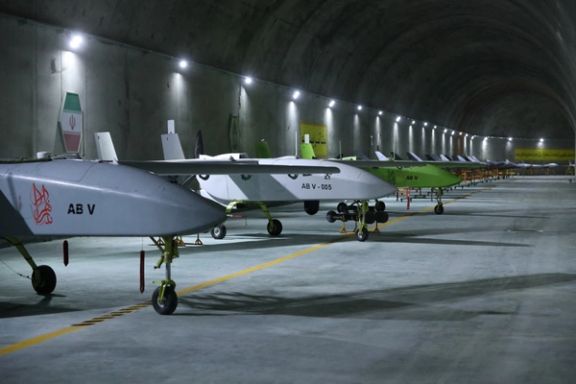
The Washington Post has revealed that Russian drone engineers had to take shelter in a Tehran hotel after an alleged Mossad strike on Iran's drone facility.
The newspaper obtained leaked documents that reveal Russian industrial experts were in Tehran for a joint attack drone operation and were forced to take shelter in their hotel after a reported attack on a Shahed-136 UAV production facility in Esfahan, central Iran.
The Iranian authorities were reportedly concerned about the possibility of additional strikes on drone facilities in Tehran, which the Russian experts were scheduled to visit.
The leaked materials, originating from a source within a specialized Russian facility working on drone production, showcased a project aiming to manufacture 6,000 drones by the summer of 2025.
In June, the US intelligence community revealed that Iran was assisting Russia in establishing a drone manufacturing plant in Russia's Alabuga special economic zone, raising concerns about potential military applications.
While the project encountered delays and difficulties, including staffing shortages in key areas of drone development, experts suggest that Russia is making strides toward enhancing its drone capabilities beyond those of the Shahed-136.
Despite the revelations, neither the Russian government, Iran's UN mission, nor the Alabuga facility responded to requests for comment. The United States and its allies have implemented measures to curtail the transfer of drone-related components to Russia and Iran.
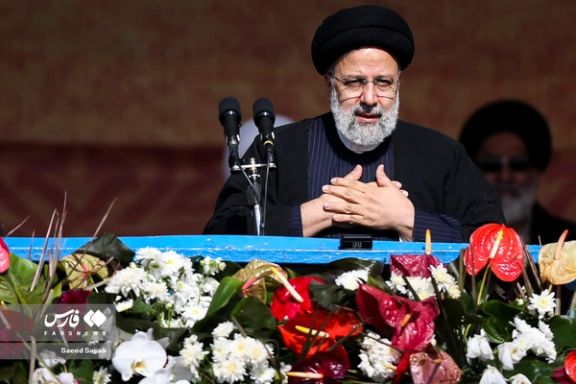
Iranian President Ebrahim Raisi has said that people of all faiths, Shias, Sunnis, and even non-Muslims regard the Revolutionary guard as a protector.
The president's remarks follow Iran's Supreme Leader Ali Khamenei comments this week describing the Revolutionary Guard as “the largest counter-terrorist organization in the world” and a forceful military power.
Raisi praised the IRGC and claimed its role has been “a source of security, tranquillity, and hope across various domains.” He went on to assert that the presence and actions of the “dedicated fighters have prevented the spread of ISIS influence in Europe” and criticized what he described as “labeling the Revolutionary Guard.”
Earlier this year, the European Parliament adopted a resolution urging member states to classify the IRGC as a terrorist organization. This development followed a movement initiated by Iranian and European activists and politicians, who have implored European states to designate the IRGC as a terror group. The movement gained traction due to the IRGC's involvement in widespread repression following the death of Mahsa Amini. However, the European Union claimed it cannot list Iran's IRGC as a terrorist entity until an EU court has determined that they are.
The IRGC has faced numerous accusations of supporting, training, funding, and arming various non-state entities and proxy groups throughout the Middle East. Organizations such as Hezbollah in Lebanon, Hamas in Palestine, Houthis in Yemen, and Shiite militias in Iraq and Syria have been recipients of IRGC support. Some countries have designated these groups as terrorist organizations due to their involvement in armed conflicts.
In recent years, the IRGC has also faced allegations of engaging in cyber activities, including cyber espionage, hacking, and disruptions targeting both regional and international entities.
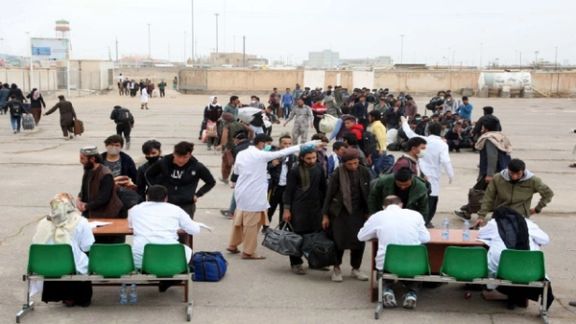
The former chairman of Iranian parliament's national security and foreign policy committee says one in every five Afghans now lives in Iran.
Heshmatollah Falahatpisheh told Faraz Daily website that "every day some 10,000 Afghans arrive in Iran as illegal immigrants and surprisingly, they get a job and a place to live within two days." He said it is as if there is a well-organized system that arranges this influx.
The former lawmaker added that based on a 2016 statistics, 1.5 million of the 7.5 to 8 million Afghans living in Iran have a military background. Seven years later, the figure must have increased considerably.
According to Khabar Online, the Afghans have been fleeing from war, violence, natural catastrophes and violations of human rights under the Taliban rule. Many of them go to Iran, and some to Iraq and Syria to escape the calamities. People also see no economic future and no social freedoms under Taliban rule.
The website added that according to the Iranian Immigration Monitoring Agency, currently, 65 percent of all migrants in the world come from Afghanistan. Nicaragua and Syria, followed by Venezuela and Haiti. In 2022, Venezuela was on top of the list.
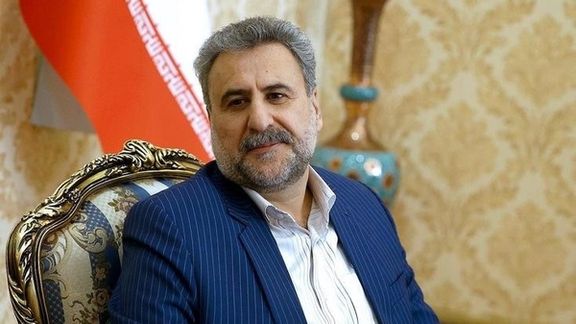
Khabar Online quoted a UN official as saying that between 500,000 to 1.5 million Afghans have arrived in Iran after the Taliban takeover of Afghanistan. In July, Interior Minister Ahmad Vahidi put the number of Afghan refugees in Iran at over five million.
In an unattributed commentary in July, Aftab News in Tehran said millions of Afghan immigrants consume at least $5b of around $90 to 100 billion annual subsidies that the government is spending to keep fuel, other energy and food prices down. The website suggested that this is only one of the ways in which the authorities are encouraging Afghans to stay in Iran.
The article suggested that the Islamic Republic might be facilitating Afghan immigration as a remedy to the problem of population decline. “We should not start to import a big population that lacks national and religious [conformity with the Iranian population] under the pretext that the country’s population may decline within the next few decades,” it said.
Falahatpisheh told Khabar Online that lack of accurate statistics about Afghans in Iran deprives hundreds of thousands from educational and health services in the host country. Furthermore, their presence has faced Iran with a major challenge as their movement cannot be monitored in terms of security, economic and social issues.
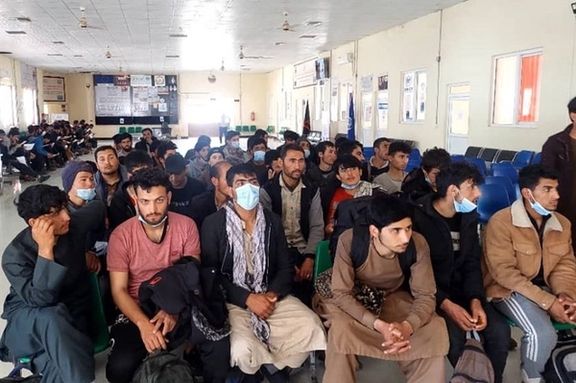
He further criticized the Iranian government for failing to keep tabs on Afghan refugees. He said: "A major part of those who come to Iran from Afghanistan have military background. We are facing an entity called the Taliban which knows nothing other than war and can turn the smallest issues into a war. Any issue in Iran-Afghan relations such as the ongoing border dispute provokes part of the Afghans in Iran.” Nonetheless, Khabar Online quoted Interior Minister Ahmad Vahidi as saying that Iran's security agencies monitor the Afghan refugees and make sure they do not pose a challenge to Iran.
Falahatpisheh further added than Afghans arrive in Iran like a wave and change the population milieu in some Iranian cities. While most Iranian families have only one child, most Afghan families have at least three children. After a decade, Afghans may comprise the majority of the population in those cities.
He added that Afghans arrive in Iran although they are aware of the shortcomings in the host country. Some of them are skilled workers and technicians and simply look for security and peace of mind in Iran.
Falahatpisheh said the number of Afghan refugees in Iran has been constantly on the rise, but Interior Ministry officials play with statistics to conceal their incapability to draw a proper plan to handle the issue.
Nonetheless, the former lawmaker insisted that the Iranian government should continue welcoming Afghan refugees. He said they have contributed to Iran's reconstruction after the 1980s Iran-Iraq war by doing the hardest jobs Iranian workers tend not to take.
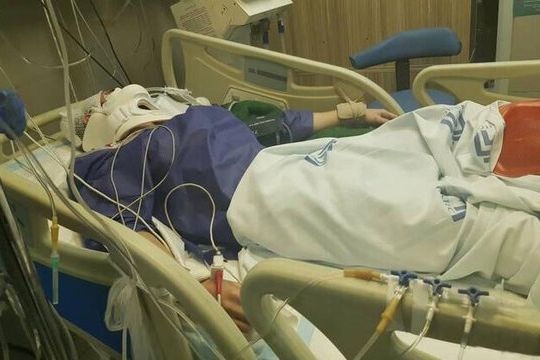
A portion of a 14-year-old boy’s skull that doctors had temporarily removed due to brain swelling, has gone missing at a hospital in Minab, Hormozgan Province.
Reports say that the teenager, identified as Hamza, sustained a brain injury in a motorbike accident in May. Initial cranioplasty surgery involved the removal of part of his skull to relieve pressure on his brain from swelling.
Doctors planned to reattach the piece of skull after recovery, but Hamza's father revealed to local media that during a recent hospital visit, medical staff informed him that the missing portion was "unavailable."
Authorities are investigating the matter and said that if negligence is established, appropriate legal action will be taken.
Dr. Hasan Zarei, Deputy of Treatment at Hormozgan University of Medical Sciences, said that Hamza's cranioplasty, during which a titanium implant was inserted in place of the removed section, was conducted “successfully” last Thursday. Regarding the missing piece, he said, “experts are currently investigating the matter and emphasized that any deviation from scientific and legal protocols will be addressed in accordance with regulations.”
He added that this surgery is a common medical procedure globally and urged trust in the medical institution.
Meysam Salehi, head of Hazrat-e Abolfazl Hospital in Minab also confirmed that investigations are ongoing and confirmed that in the case of negligence, “appropriate legal measures will be taken”.
According to medical officials in Hormozgan Hamza's vital signs are stable, and he has been discharged from intensive care, remaining under hospital care in the surgical ward.